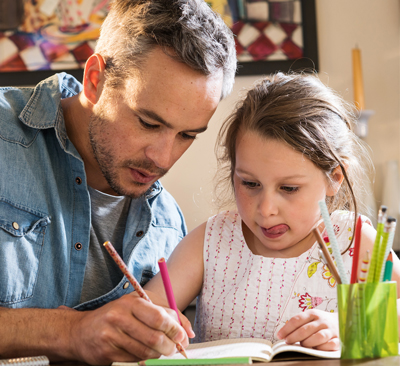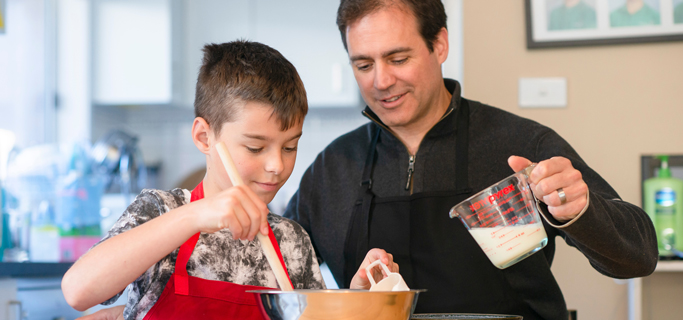Key findings
Despite the hardships, Australian families have found some silver linings in the challenges of the COVID-19 pandemic, with the majority reporting their family unit is more connected, spent more time together and used their time at home to consider what’s important in life.
Almost half of parents (42%) say they are now more connected to their child, with most having spent more time reading (51%) and playing games (68%) together, and 66 per cent have developed new positive family habits since COVID-19.
Unsurprisingly, children spent more time on screens for entertainment (51%), spent less time being physically active (42%) and ate more unhealthy food (25%) during the pandemic. In fact, only one in 10 children got enough exercise each day.
However, positive habits were also reported, with the vast majority of children (78%) utilising digital media to stay connected with their friends and extended family. Three-quarters of parents (75%) said their child was able to learn well remotely using digital devices.
Most parents (70%) also tried harder than usual to feed their children healthy food and taught children cooking skills, with 63 per cent of kids being more involved in preparation of food at home.
Poll Director, Paediatrician Dr Anthea Rhodes, said parents spending time with their child reading books, playing games or exercising are some of the best ways to create positive relationships, and these activities also come with benefits for both physical and mental health.
“As we continue to adjust to life through the different stages of the pandemic, one helpful thing parents can do is focus on how they can continue with these positive new habits and activities,” Dr Rhodes said.
“If kids have formed unhealthy habits during the pandemic, the best way to get back on track is to re-establish a routine that works best for you and your family. This could be cutting down on screen time and replacing it with some exercise, or setting boundaries around a healthy bedtime.
“We should also try to remember it’s ok to feel a bit lost during the pandemic. Parents may need to go easy on their kids, and themselves, and it’s reasonable to relax the rules at home for a while. However, as we all adjust to a ‘new normal’ it will be really important for families to find a way to get back into healthy habits, as this will help not only your child, but you too.”
Concerningly, the report also shows of the one in five (20%) children who became unwell or injured since the onset of the pandemic, one third (31%) had healthcare delayed or avoided by parents.
Reasons for this included parents being concerned that their child might catch COVID-19 at a healthcare facility (59%), wanting to follow government advice to stay home (38%) and not wanting to burden the hospital or GP during the pandemic (28%).
“We understand that parents are worried about COVID-19, but it is never ok to delay healthcare when it is needed. It is important parents are reassured that healthcare services, including hospitals and GPs, are safe places. Extensive precautions are in place to protect the health of every child and family. If your child is sick, please get healthcare without delay,” Dr Rhodes said.
The findings also show the pandemic has negatively impacted the mental health of both parents (48%) and children (36%). Loneliness was a common experience for both parents and children, and strongly linked to a negative mental health impact.
“The pandemic has affected us all in different ways, and for a large proportion of us, the impacts have been negative. People need to look out for each other and find ways to stay connected,” Dr Rhodes said.
“For families facing another period of extended lockdown – this will be harder than ever. But it’s also more important than ever to try each day to fit in some exercise, healthy food, enough sleep and time to connect with others. These are the things that will help keep kids happy and healthy, and parents too.
“If you or your child are struggling please reach out to your local healthcare services and seek support. We know mental health and wellbeing can affect all aspects of our lives and it’s more important than ever to seek help now.”
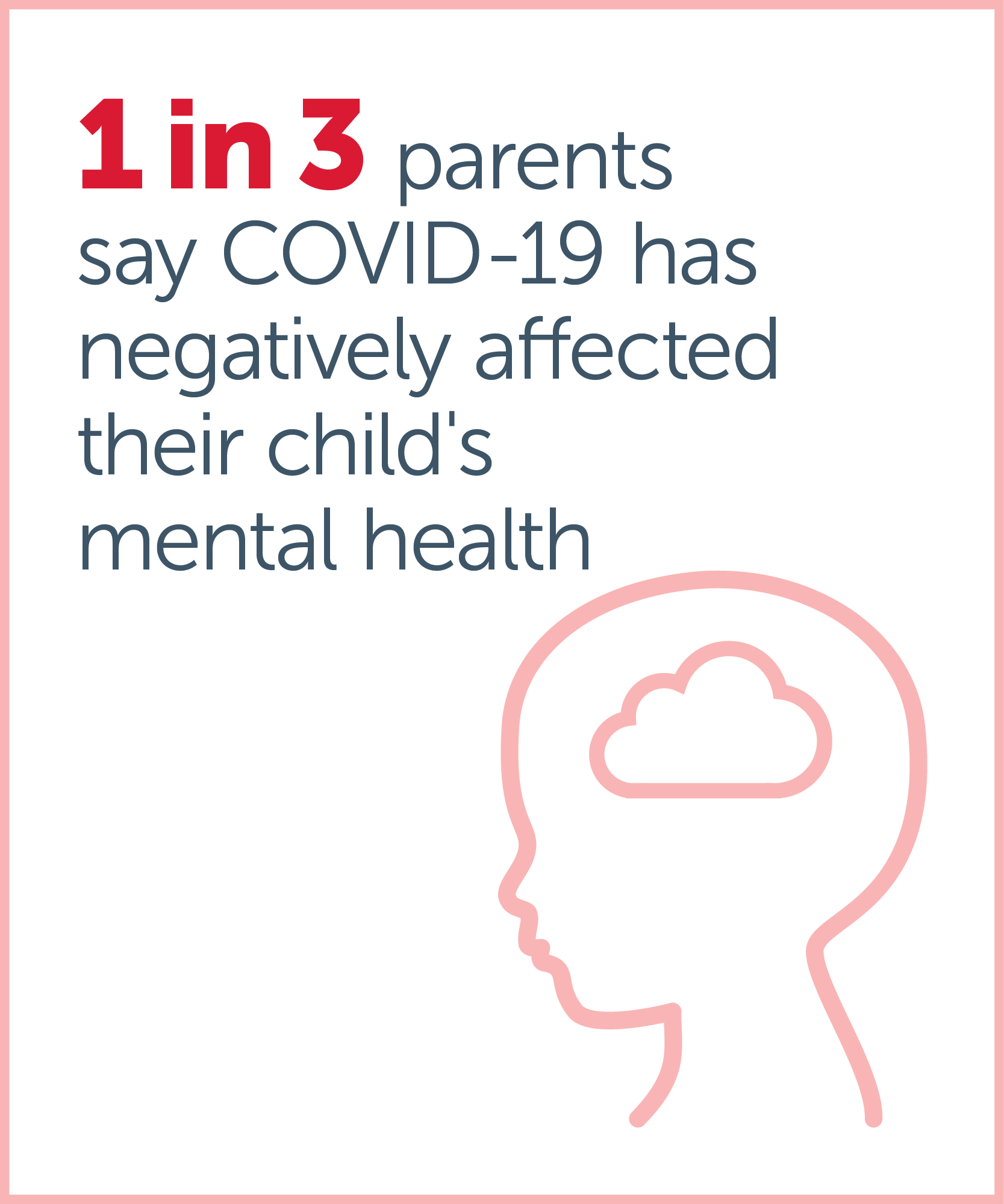
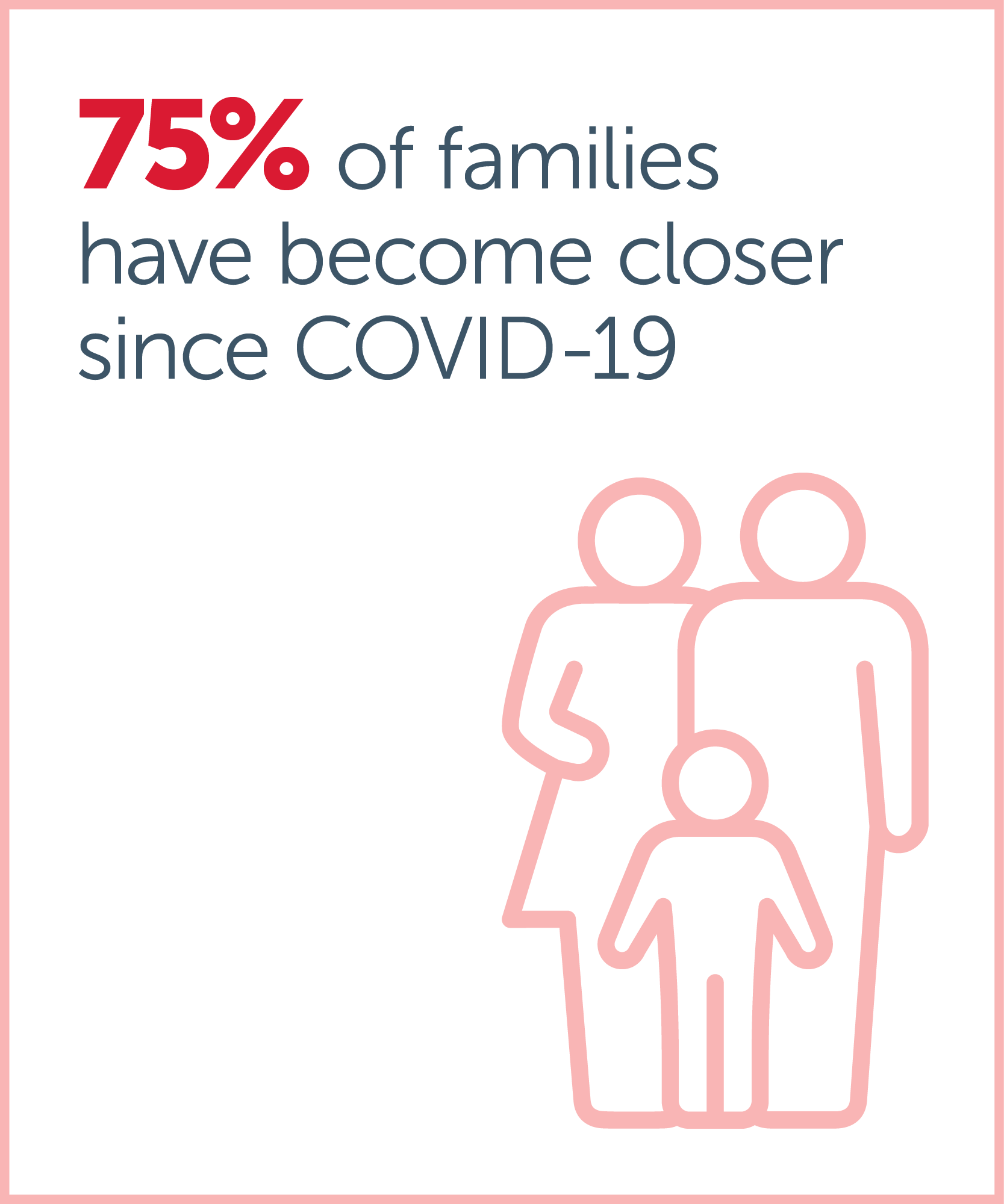
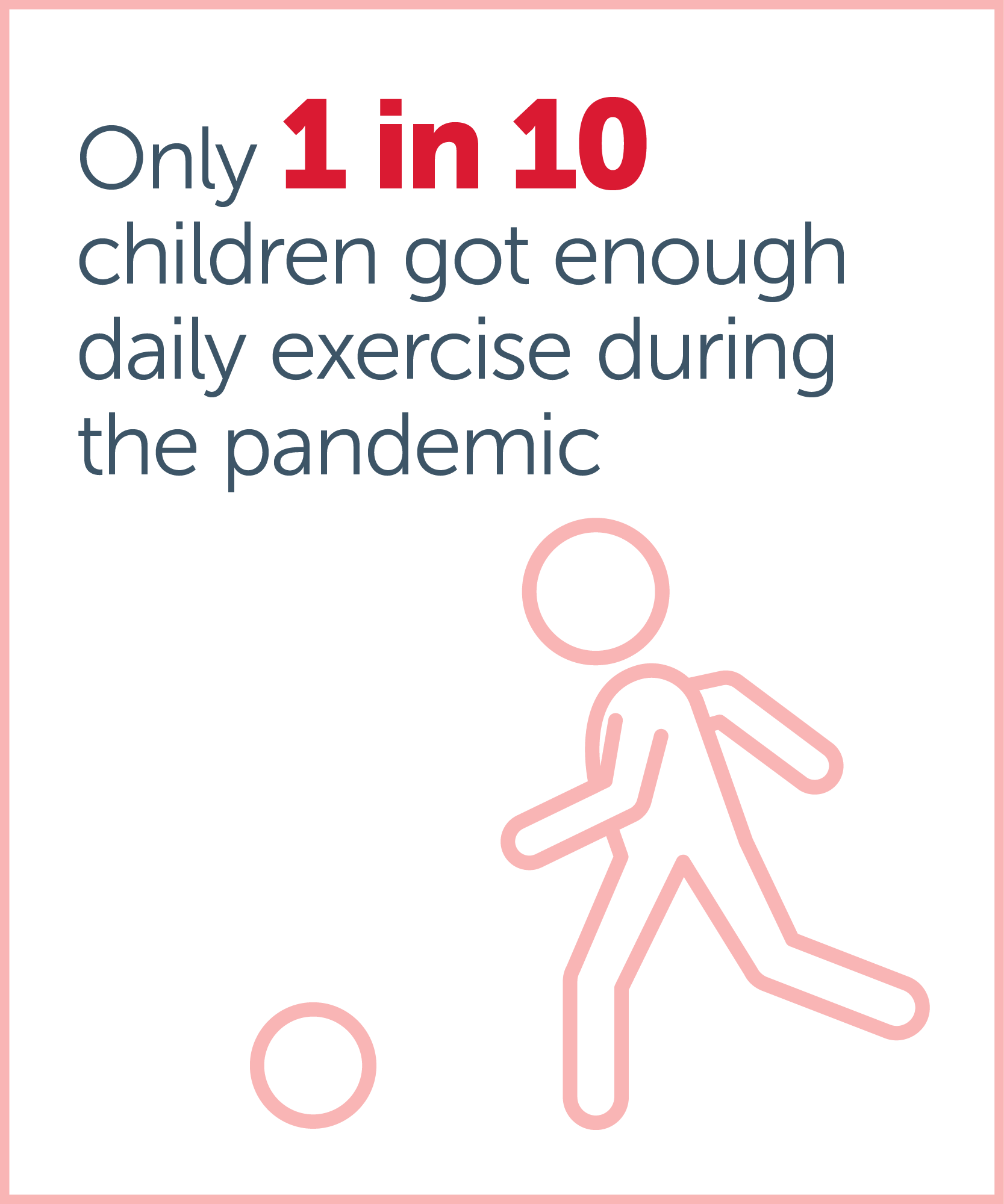
Poll report
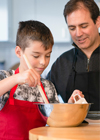
COVID-19 pandemic: Effects on the lives of Australian children and families
Download reportRoutine childhood vaccinations: Effects of the COVID-19 pandemic
Download report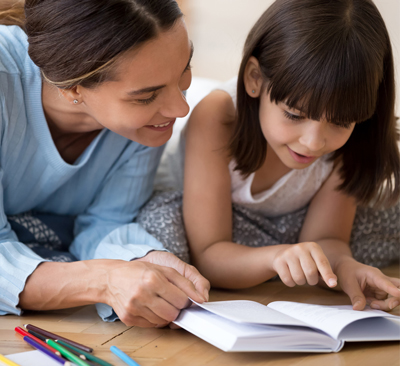
Poll questions

COVID-19 pandemic: Effects on the lives of Australian children and families
Download questionsRoutine childhood vaccinations: Effects of the COVID-19 pandemic
Download questions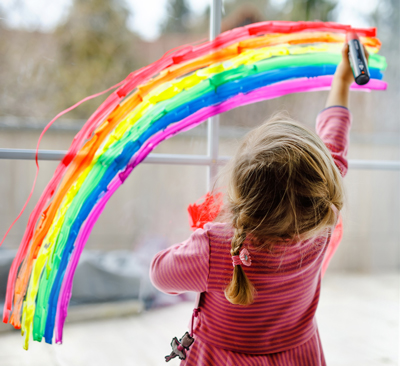
In the news
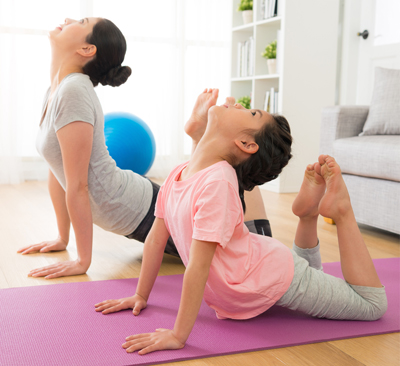
Information for parents
Healthy Habits at Home challenge
Keeping up healthy habits during the pandemic can be hard. That’s why we have created the Healthy Habits at Home challenge.
Watch our video below with Jazz and Rocco to find out how you can get involved.
Don’t forget to download our challenge chart and tag us on Facebook or Instagram when you have completed a whole week!
Tips for parents
- Try to continue the positive family habits you formed during the pandemic, such as reading, playing games and cooking with your child
- If your family has adopted some unhealthy habits during the pandemic, try to establish a routine to get back on track
- Cut down on screen time and replace it with exercise, reading or playing games as a family
- Set boundaries so your child knows when it’s their bedtime
- It’s ok to relax the rules at home while we navigate through the challenges of the pandemic, but try to find ways to get back into healthy habits when you can
- Don’t delay seeking healthcare when it is needed. It’s important to know that healthcare services like hospitals and GPs are safe places for you and your child
- Remember, it’s ok if you’re feeling a bit lost during this time – go easy on yourself and your child
- if you or your child are struggling, reach out to your local health services for support or visit Kids Helpline, Beyond Blue or Lifeline
General additional resources
- RCH Kids Health Info – Supporting your child to cope with the COVID-19 pandemic
- Raising children – Coronavirus: family guide
- Victorian State Government – Advice for parents, carers and guardians
Financial resources
- Department of Social Services – Coronavirus information and support
- Money Smart – COVID-19 financial assistance
Mental health resources
It’s natural to worry about what COVID-19 might mean for your family. If you’re worried and need support, you could talk to your GP or a local counsellor.
You can also call Lifeline on 131 114 or Beyond Blue on 1300 224 636.
- Lifeline Australia – We’re here for you
- Beyond Blue – Coronavirus Mental Wellbeing Support Service
- Kids Helpline – Your guide to everything coronavirus
Physical activity
- Department of Health – Australian 24-Hour Movement Guidelines
- Department of Health – Exercising and staying active during coronavirus (COVID-19) restrictions
- Sport Aus – Find your 30 at home challenge
Diet and nutrition
- Department of Health – Healthy eating during coronavirus (COVID-19) restrictions
- Raising Children – Healthy eating habits for kids aged 1-8 years
- Raising Children – Healthy eating habits for kids aged 9-18 years
Screen time
- Raising Children – Screen time: checklist for healthy use
- E-safety – Screen time tips
Sleep
- Raising Children – Sleep problems and solutions: children and teenagers
Coronavirus
Australian, state and territory health department websites have the latest and most reliable information and advice about coronavirus (COVID-19). For more information please visit the following websites or call the Coronavirus Health Information Line on 1800 020 080 or Healthdirect on 1800 022 222.
